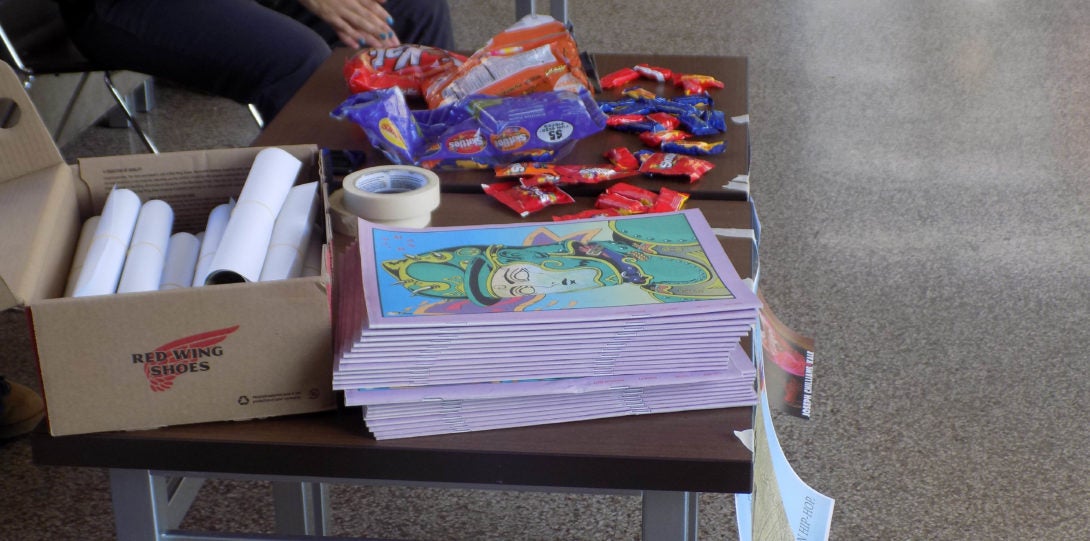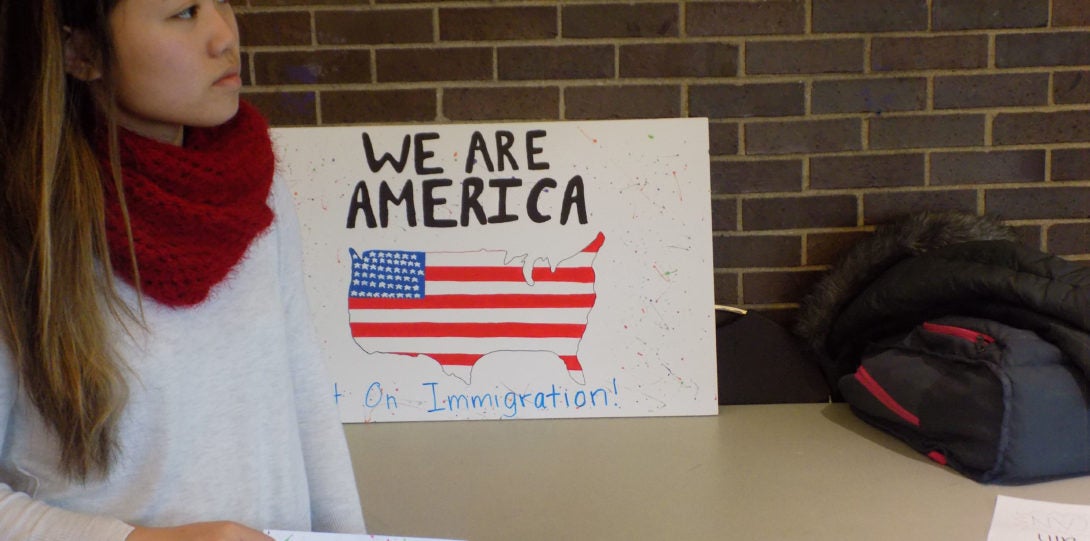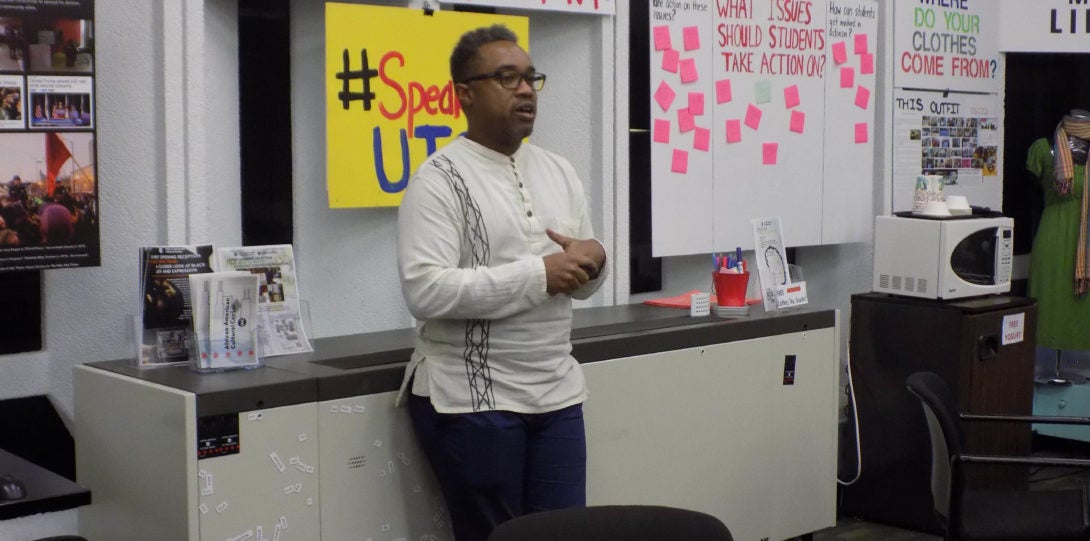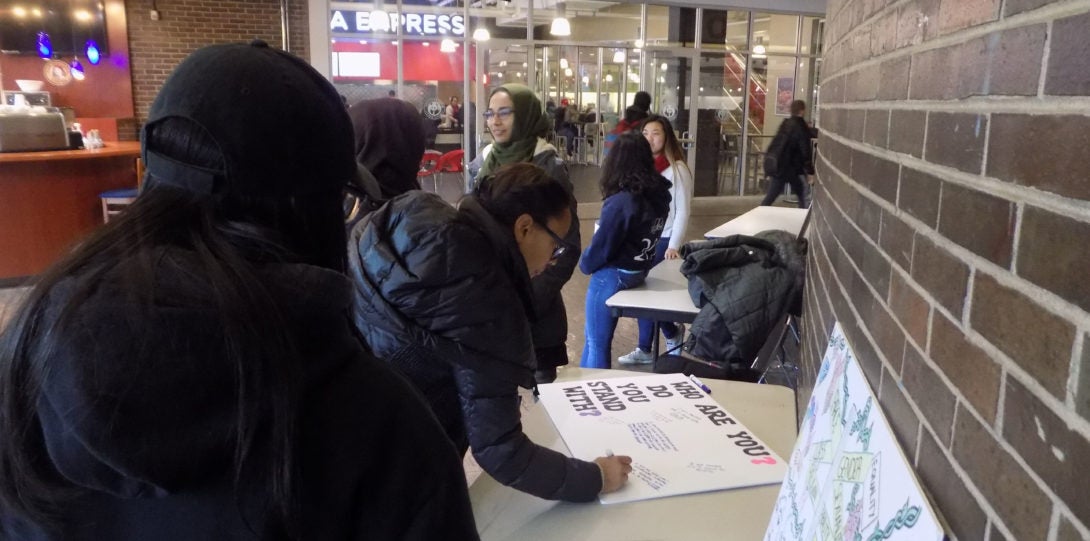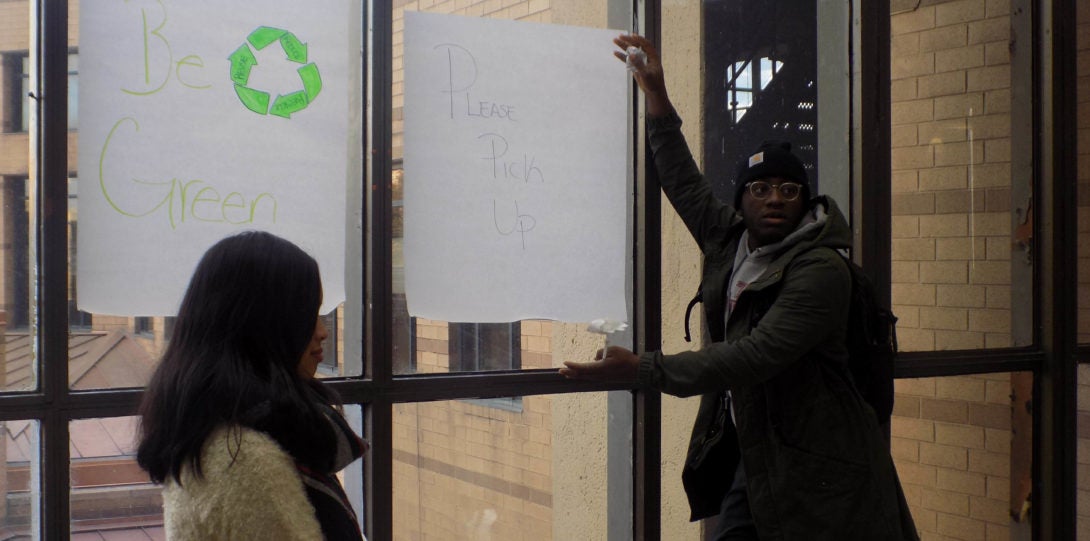Pedagogies of Protest: A Student-Curated Installation
Contributors: Berenice Baldaeras, LaCreshia Birts, Rehman Bokhari, Arianna Brown, Kayla Butler, Anisha Chandran, Ashley Estrada, Elyzandra Freitas, Lana Hishmeh, Dawn Joy, Nida Fayyaz, Jessa Mae Mendiola, Eleanor Grace Ravenwhite, Lucy Schiller, Marla Stamps, Viviana Uribe
January 24 - May 11, 2018 / AACC Library
The interactive panels assembled in this exhibit are the works of sixteen students enrolled in the Fall 2017 Honors College 201 seminar "Pedagogies of Protest." Directing attention to a range of social, cultural, political and environmental issues, the students' contributions are in dialogue with creative forms of protest taking place at the University of Illinois at Chicago, in Chicago, nationally and globally.
Pedagogies Heading link
Pedagogies Heading link
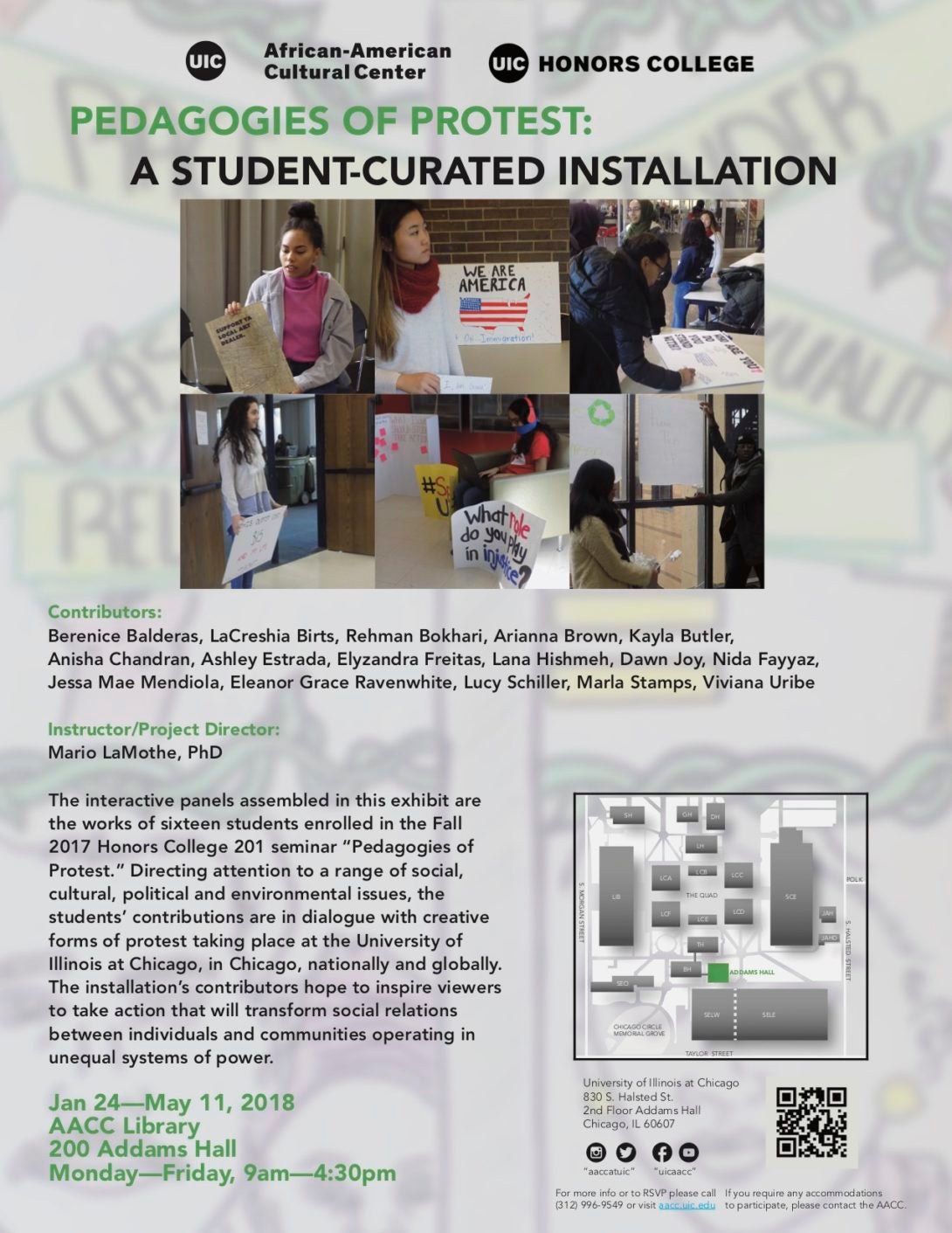
The installation’s content is drawn from the students’ public action about a social need, equity or justice issue at UIC’s Student Center East on October 31, 2017. Their work also responds to seminar discussions about cogent manners in which protesters put their body on the line, with activism and art as interrelated agents of social change. The course enabled us to question and experience the pairing of embodiment and art making as a method that interrogates the lived experiences of others and ourselves. Our ethically grounded dialogues, workshops and presentations paid particular attention to how creative-based public action:
- Redefines public space for assembly, dialogue and expression instead of isolation, silence and violence;
- Engages a form of collective communication that interrupts the “normal” way of being in public and private spaces when “normal” protects oppressive ways of being;
- and puts into practice a protected right under the constitution- that is, freedom of assembly and being in solidarity.
Pedagogies Heading link
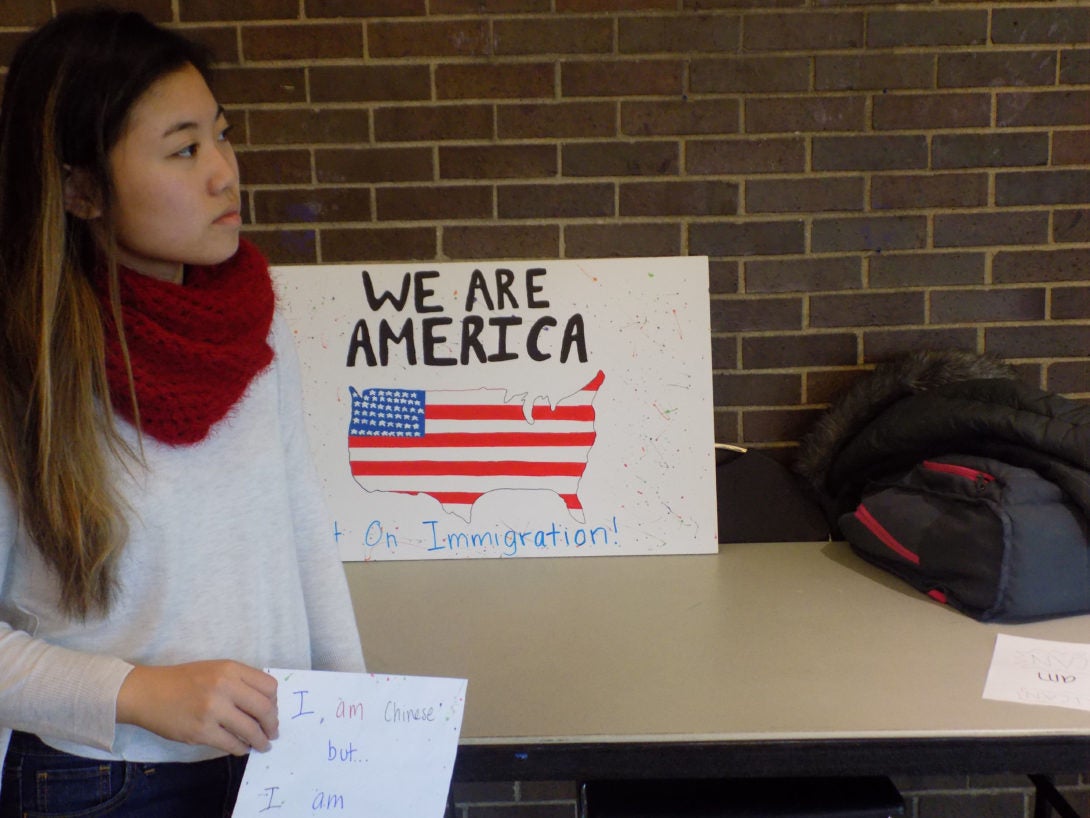
We highly encourage viewers to interact with the work on display. The African-American Cultural Center welcomes questions and feedback about the installation and its research-based inquiries. Ultimately, the installation’s contributors hope to inspire viewers to take action that will transform social relations between individuals and communities operating in unequal systems of power.
